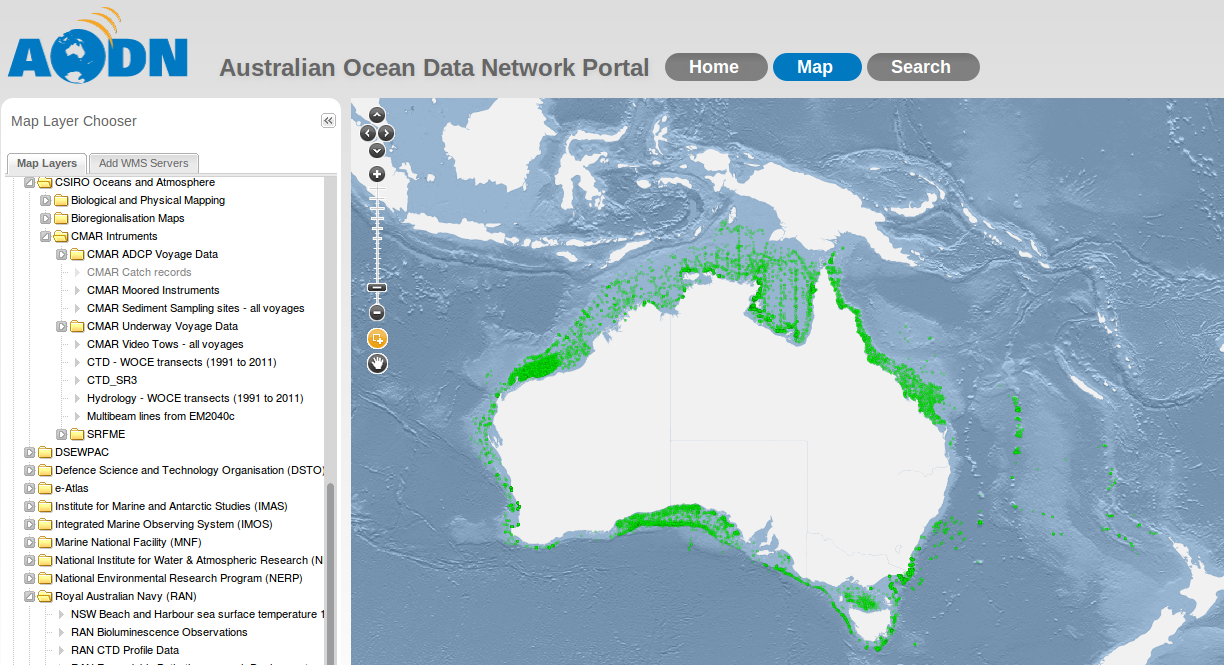AODN Ocean Data Portal
The AODN Ocean Data Portal is the primary access point for search, discovery, access and download of data collected by the Australian marine community.
Primary datasets are contributed by the Integrated Marine Observing System (IMOS) an Australian Government Research Infrastructure project, and the six Commonwealth Agencies with responsibilities in the Australian marine jurisdiction (Australian Antarctic Division, Australian Institute for Marine Science, Bureau of Meteorology, Commonwealth Science and Industrial Research Organisation, Geoscience Australia and the Royal Australian Navy).
This portal has access to the complete IMOS metadata catalog and all available ocean data (you can also access the IMOS portal here. Some of the interesting datasets include:
- Aerial photographs, nest cameras, protected areas and satellite imagery from the Australian Antartic division
- Coral cores and oceanographic surveys from the Australian Institude of Marine Science
- Sea level and wave gauge data from the Bureau of Meterology
- Mapping and climate modelling from the CSIRO
- Temperature, CDN and bioluminesce data from the Royal Australian Navy
The infrastructure of the AODN is based on the IMOS Ocean Portal, which follows international standards and agreements for data/metadata formatting, discovery and sharing. We utilise the Nectar National Servers program to deliver the IMOS data and the Tasmanian Partnership for Advanced computing (TPAC) at UTAS, through the Research Data Services program, to provide the long term archive.
IMOS and the repositories of the Commonwealth agencies (see Who are we?) form the core of the AODN. Increasingly, though, universities and State government offices are offering up data resources to the AODN, and delivery of data to the AODN is being written in to significant research programs e.g. National Envronmental Science Program Marine Biodiversity Hub and the Great Australian Bight research program.
You can follow the AODN on Facebook.


